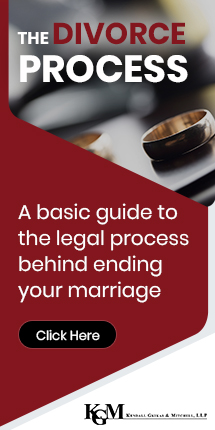The law can be rather murky when it comes to divorce and same-sex parents. Gay and lesbian marriage is a relatively new development, so there are legal and cultural practices that have yet to stabilize.
Like any divorce, it’s key that you and your former partner come to an agreement on divorce terms.

Start with deciding who will have legal custody
Legal custody means who will legally be allowed to make decisions about the child, so you could have joint custody or one person could have sole legal custody.
Physical custody is up next
Where the child lives will be an important issue to come to an agreement on, whether the living arrangements are shared, or one person takes physical custody and the other person is allowed to visit. Visitation terms will also have to be worked out—how often? When? For how long? Under what conditions? Both parents will have to come to an agreement on these terms for the divorce settlement to be eventually finalized.
Then have the money talk
Child support is often a major issue for heterosexual and homosexual couples. How much financial support will the noncustodial parent need to provide for the child to be well-provided for?
If you can’t reach an agreement on all terms, you’ll have to submit your case to the court system.
If you do end up going to court, your case may be rather complicated, depending on various factors.
If both parents are legal parents of the child, the case will be decided in the same way as straight couples. Both parties may be legal parents if the child was adopted,
born into the marriage in a state where a nonbiological parent may receive parental rights, or through a second-parent or stepparent adoption. The judge will follow the same legal statutes that apply to straight couples, and make his or her rulings based on the best interests of the child.
If only one party is the legal parent, there could be a more wide range of potential outcomes. In most states, it doesn’t matter why the second parent isn’t a legal parent—perhaps the legal parent didn’t agree, or you lived in a state where relationship recognition and non-biological parent adoption isn’t available. Whatever the case may be, the party who is the legal parent has a lot more rights to the child than the one who isn’t. The non-legal parent may not even be required to pay child support. However, some judges may assign the non-legal parent some rights because of his or her intent to help conceive and raise the child.
If both parties aren’t a legal parent of the child, it’s absolutely key that you get an experienced attorney to represent you. At Kendall Gkikas & Mitchell, we know that the law regarding same-sex couples changes rapidly, and we’re well-versed in the viewpoints of just about every judge in Southern California. Depending on what happens with the law and who hears your case, the outcome of your dispute can depend on which judge decides your case. It’s important to have someone who knows all the ins-and-outs of the legal system on your side, especially in the instance of a same-sex parent divorce.
Whichever side you’re on, whether you’re the legal parent or the non-legal one who still wants to have custody rights, you can trust Kendall Gkikas & Mitchell to do everything possible to reach a favorable outcome outside of court, or within the court system, if necessary.
Call Kendall Gkikas & Mitchell at 909-482-1422 to schedule an initial consultation today. No matter what your situation, you can count on our experienced attorneys to treat you with respect and kindness as soon as you walk in the door.


